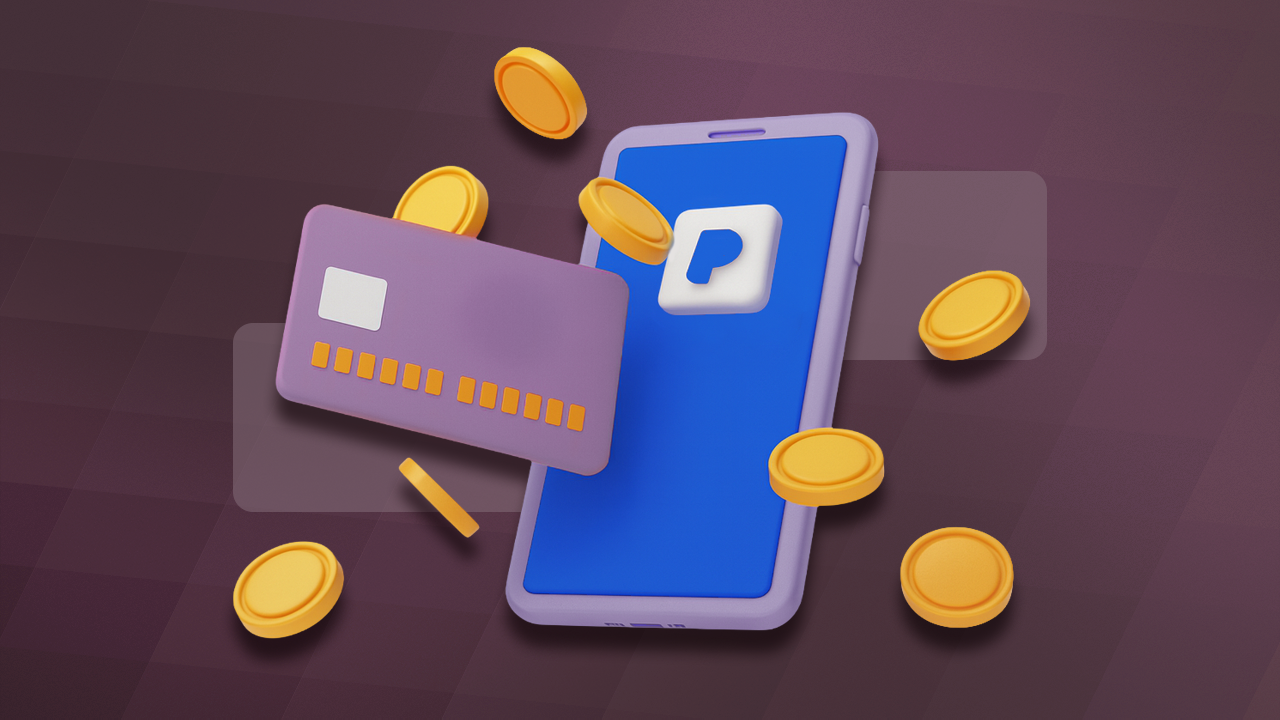If you’re reading this article, you probably already know that while great for consumers, PayPal is not the best solution for businesses accepting online payments. Some of your customers may prefer it for convenience but PayPal’s fees add up quickly and the risk of holds and chargebacks is much higher than when using a dedicated B2B payment processing solution.
In this article, we’ll review five top tier alternatives to PayPal that your business should consider. We’ll also showcase the advantage and cost savings you could achieve by adding ACH in addition to credit card as a payment option for larger invoices.
Key Takeaways
- PayPal's 3.49% + $0.49 fee structure makes it prohibitively expensive for large B2B transactions—a $50,000 invoice would cost $1,745 in fees alone.
- Alternatives like Stripe ($5 cap), Square (1% + $5 cap), Bill.com ($0.59 ACH), and QuickBooks Payments offer varying degrees of savings, each with trade-offs between cost, features, and integration complexity.
- Platforms like Nickel eliminate fees entirely by allowing you to pass through credit card fees while also offering the option for free ACH.
Why PayPal Falls Short for Businesses
PayPal is one of the most known and trusted ways to transfer money online, but for businesses it falls short for a number of reason:
The fee structure doesn't scale
A 3.49% + $0.49 per transaction fee may not sound like much, and for consumers, the convenience may be worth it, but especially for businesses charging larger invoiced based transactions fees this high are unacceptable. Process $500K monthly and you're paying $17,450, money that could fund hiring, inventory, or growth.
Account holds disrupt cash flow
Many business owners have complained that PayPal freezes accounts or holds funds for "risk review," sometimes for weeks. For businesses operating on thin margins, holds can be catastrophic.
Support may not meet the needs of business customers
When payment issues arise, you need immediate help. This is especially true for businesses that process large, invoiced based transactions. PayPal's support system is known to rely heavily on automated responses and many new customers processing large payments have complained that PayPal holds their funds for up to 21 days. This can create serious cashflow issues and be make or break if your margins are thin.
Settlement times lag competitors
Standard PayPal transfers take 3-5 business days, and instant transfers cost an additional 1.75%. When you're waiting to pay your own suppliers, these delays may create serious issues.
Businesses need reliable, cost-effective payment infrastructure, not a consumer app adapted for commercial use. Now that we’ve outlined the core issues with accepting payments using PayPal for small businesses, let’s discuss the best PayPal alternatives.
Comparison of Top PayPal Alternatives for Business
So which processor is best for you? This chart provides a quick overview that can help you figure that out. Further below, we’ll provide a more detailed breakdown of differences between popular payment platforms.
Top Alternatives to PayPal for Small Business
Now that we’ve discussed PayPal’s limitations for business use cases, let’s discuss the best alternatives to PayPay for SMBs.
1. Nickel: Built Specifically for B2B
Nickel is designed specifically for B2B transactions. Where PayPal forces businesses into a consumer-first mold, Nickel is built to anticipate the problems that come with large invoices, complex approvals, and the need for clean integration with accounting systems.
Nickel knows how much ACH payments can cost your business. That’s why, unlike competitors, we offer ACH transfers are completely free with no monthly fees or transaction caps. Processing a $50,000 invoice costs exactly $0 compared to the $1,745.49 you’d hand over to PayPal at 3.49% plus $0.49. For card payments, Nickel charges a much lower flat rate of 2.9%while offering the ability to pass credit card fees onto the consumer.
Unlike PayPal, Nickel also allows you to send payments to users who don’t have an account. Businesses can conduct $0-fee ACH transactions using nothing more than a customer’s bank account information and routing number. This saves you the administrative hassle of needing to align payment systems with clients who might use different processors.
Nickel also dominates in accounting integration. Payments sync directly into QuickBooks, removing hours of reconciliation headaches and administrative work that eats into your valuable labor hours. The seamless integration allows you to pay directly through Quickbooks.
Nickel’s platform also supports recurring payments, partial transfers, and multi-approval workflows that fit real B2B operations. Pro users can access 2 business day transfer times for ACH, eliminating slow cash flows and ensuring money hits your bank account more quickly..
Take advantage of unlimited and free ACH transfers, QuickBooks Online integration, and more - Get started with Nickel today.
2. Stripe: The Developer's Choice
Stripe has become the go-to platform for businesses that need serious payment infrastructure. Its fees -- 2.9% + $0.30 for cards and 0.8% for ACH capped at $5 -- might not look so different from PayPal’s on paper but you’ll notice a big difference with larger transactions. Processing a $100,000 invoice costs just $5 with Stripe ACH, while PayPal would swallow more than $3,400.
Stripe’s real power comes from the platform’s flexibility. Its API allows businesses to build custom payment flows, manage recurring subscriptions, and run multi-vendor marketplaces. Internationally, Stripe supports over 135 currencies with straightforward exchange rates, giving businesses cleaner global operations without the hidden costs.
For organizations with technical resources, Stripe is the backbone for scaling. The platform’s combination of predictable pricing and developer-first design have earned it a reputation as the gold standard for modern B2B payments.
3. Square: Beyond the Card Reader
Square has grown from a simple card reader into a full-scale payment ecosystem built for businesses that operate both online and in person. Its system is one of the easiest to use - professional invoices, recurring billing, and real-time tracking are all managed from a single dashboard.
Fees are competitive. For online invoices, the rate is 3.3% + $0.30 In-person payments run 2.6% + $0.10. Square really shines for larger transactions made via ACH: the rate is 1% with a $1 minimum, capped at $10 per payment on the Invoices Plus plan (but no cap if you aren’t on the Invoices Plan).
Clients that use Web Payments SDK or Payments API decrease that cap even further-- to just $5. No chargeback fees apply, which makes ACH through Square conveniently predictable for high-value payments.
The appeal extends beyond payments. Square Capital provides quick access to loans, its POS system manages inventory, and payroll tools integrate seamlessly. For businesses wanting to consolidate finance, payments, and operations into one system, Square delivers an all-in-one solution that PayPal simply can’t match.
4. QuickBooks Payments: When Integration Matters Most
For businesses already operating inside QuickBooks, QuickBooks Payments is the easiest way to connect invoicing and accounting. Every payment flows directly into your books, automatically matched and categorized. That level of integration saves hours of reconciliation and keeps financial records clean without extra effort.
The trade-off is cost. ACH transfers are 1% with no cap for new accounts, which makes large transactions expensive compared to capped-fee competitors. Card payments will cost2.9% and an additional $0.25, putting QuickBooks Payments in the same range as PayPal. The value isn’t in the pricing - it’s in the convenience.
For businesses that prioritize simplicity and streamlined accounting integration over fee savings, QuickBooks Payments delivers. But for anyone processing high-value ACH, it quickly becomes one of the priciest options on the table.
5. Bill.com: Enterprise-Grade AP/AR
Bill.com, now branded as BILL, is built for businesses that outgrow simple payment tools and need real control over accounts payable and receivable. Pricing starts at $45 per user per month for the Essentials plan and scales up to $89 for Corporate, with custom pricing for Enterprise.
The real value lies in its automation and control. Approval workflows can be customized with spending limits, multi-user routing, and audit-ready trails that stand up to compliance reviews. Integration is broad, covering QuickBooks, NetSuite, Sage Intacct, Microsoft Dynamics, and Xero with automatic two-way sync on higher tiers.
On the payments side, costs are competitive: ACH is $0.59 per transaction. Virtual cards are free when accepted, and checks cost $1.99. Faster options are available, including same-day ACH at $11.99. International wires are supported in 30+ currencies with competitive FX rates.
For scaling businesses that need stronger controls, global supplier payments, and end-to-end automation, BILL turns AP/AR into a growth driver instead of a bottleneck.
The Bottom Line on PayPal Alternatives
PayPal is a simple, trusted platform that works for small payments but for businesses processing any significant amount of money, the fees make it a poor choice.
Stop letting payment processing fees eat into your profits. B2B focused platforms like Nickel can help you drop fees to zero. Nickel lets you compliantly pass through credit card fees while still offering customers a free way to pay via ACH.
Explore your options and get started with Nickel
Frequently Asked Questions
Can I Keep PayPal for Some Transactions While Using an Alternative for Others?
Absolutely. Many businesses maintain PayPal for consumer-facing transactions while processing B2B payments through specialized platforms like Nickel. This hybrid approach lets you optimize fees based on transaction type. Just remember that managing multiple platforms adds complexity, so make sure the savings justify the additional administrative work.
How Difficult Is It to Switch from PayPal to an Alternative Payment Processor?
The transition typically takes 1-2 weeks for full implementation. Most modern platforms offer migration support and can import your customer data. The biggest challenge is updating your customers’ payment habits. Start by moving new customers to your new platform while gradually transitioning existing relationships. Platforms like Nickel that don’t require customer account creation make this transition smoother.
Will Switching from PayPal Hurt My Conversion Rates?
For B2B transactions, probably not. Business buyers care more about payment terms, invoice accuracy, and ease of reconciliation than brand recognition. In fact, offering ACH payments (which PayPal doesn’t support directly) often increases B2B conversion rates because it’s the preferred payment method for large invoices. The key is choosing an alternative that matches your customers’ preferences.
What About PayPal's Buyer Protection - Don’t I Lose That with Alternatives?
PayPal’s buyer protection primarily benefits consumer transactions. For B2B payments, it often creates more problems than it solves through frozen funds and lengthy dispute processes. Professional payment platforms offer different protections more suited to business transactions, including better fraud detection, verification processes, and chargeback management designed for invoice-based payments.
Is It Worth Switching if I Only Process $10,000-20,000 per Month?
Even at $15,000 monthly volume, PayPal’s fees cost you roughly $4,600 annually. Switching to a platform with free ACH transfers could save most or all of that money. The question isn’t whether it’s worth it - it’s whether you’d rather have that $4,600 in your business account or PayPal’s. For most SMBs, that’s enough savings to justify a few hours of setup time.
Can These Alternatives Handle International Payments?
Most PayPal alternatives offer international capabilities, often with better exchange rates. Stripe and Bill.com particularly excel here, supporting multiple currencies with transparent FX rates. Nickel focuses on domestic US payments but offers the best rates for those transactions. Choose based on your actual needs - there’s no point paying for global capabilities if 95% of your transactions are domestic.
What if My Customers Refuse to Pay Through Anything Except PayPal?
This is rarely an actual problem in B2B contexts. Most business buyers prefer ACH or credit card payments directly rather than routing through PayPal. If you encounter resistance, explain the benefits: faster processing, better invoice management, and potential discount opportunities. For the occasional holdout, you can always process their payment manually or maintain a limited PayPal account for exceptions.





